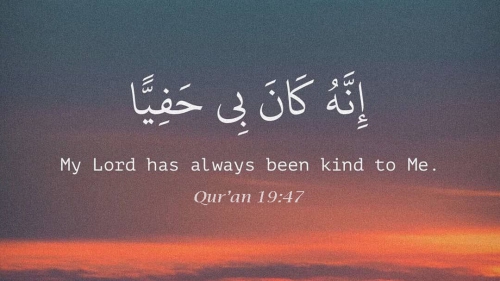God, Money and Planet Earth
 |
Earth hovers on the brink of ecological catastrophe - actually, 20 years closer to the brink than it was at the first global climate summit, in 1992.
"Deserts continue to expand. The loss of plant and animal species has accelerated . . . . And greenhouse gases have continued to build up in the atmosphere," the Los Angeles Times explains. No matter that, 20 years ago, most nations of the world "signed off on a long list of goals and agreements" designed to ensure a different future. Nothing came of it.
And my sense is that no one expects the U.N. Conference on Sustainable Development, a.k.a. Rio+20, which begins this week, with representatives from 190 countries attending, to make any difference in our disastrous drift ever more deeply into unsustainability . . . because nothing can make a difference. We're stuck, apparently, in a system that won't be constrained by international goals and agreements, which are already compromises to that system. No matter that this is a life-devouring system that serves the interests of the very few - and at best serves them temporarily. No matter that more and more people see the insanity of this system. There seems to be no escape from it.
That is to say, there's no escape from the demands and requirements of money, the pursuit of which tramples whatever we might hold sacred, such as the future.
"These summits have failed for the same reason that the banks have failed," George Monbiot wrote recently in The Guardian/UK. "Political systems that were supposed to represent everyone now return governments of millionaires, financed by and acting on behalf of billionaires. The past 20 years have been a billionaires' banquet."
I add my voice to this frustration in order to raise a single question: What if the problem is deeper than greed, or the evil rich? Seldom does the analysis get beyond the concept of greed, whether corporate or individual. Instead, an obvious solution is advanced: Get the greedy ones out of power. And there the analysis tends to stop, because the path to doing so quickly gets incredibly vague.
Whatever the divide between the 1 percent, or the .0001 percent, and the rest of us, there's enough general prosperity in the system to implicate almost everyone in the habitual consumption of corporate products, tying our self-interest to systematic environmental destruction. Half the population is in denial that this is happening and the other half feels mostly powerless despair. And even when we think we've won the election, the victors turn out to be beholden to the same hidden interests. The system continues unabated.
What generally remains unquestioned is the nature of money itself.
In his book Sacred Economics, Charles Eisenstein points out that our notion of spirit "is that of something separate and nonworldly, that yet can miraculously intervene in material affairs, and that even animates and directs them in some mysterious way.
 |
"It is hugely ironic and hugely significant," he continues, "that the one thing on the planet most closely resembling the forgoing conception of the divine is money. It is an invisible, immortal force that surrounds and steers all things, omnipotent and limitless, an 'invisible hand' that, it is said, makes the world go 'round."
Or, if it so chooses, money can decide to make the world uninhabitable. It works in mysterious ways . . .
Eisenstein's book is one of the few analyses I know of that attempts to explain money in terms larger than its own. I recommend it highly, and offer a brief synthesis of his analysis in an attempt to put Rio+20 into a context larger than "why bother?"
The destructive nature of our current monetary system, according to Eisenstein, is due to that which backs it, rendering helpless everyone who deals with money, because what backs it becomes what we are, in essence, forced to worship. If gold backs money, people worship gold. But some time ago, our monetary system evolved beyond the backing of material substances. Money, now an electronic notation on a computer screen, is backed by none other than growth itself - by the creation of more money.
"Created as interest-bearing debt, (money's) sustained value depends on the endless expansion of the realm of goods and services," Eisenstein writes. "Whatever backs money becomes sacred: accordingly, growth has occupied a sacred status for many centuries."
And this is the problem. It's not the greed of the powerful, however ferocious and consuming that might be, but the nature of money itself, our tacit and unconscious agreement on value, that has turned the system into a mechanism of unlimited growth. Thus David Korten, writing in YES! Magazine, describes the essential Rio+20 debate as "a foundational choice between two divergent paths to the human future": the Money Path or the Life Path.
This may be an impossible choice. But what if this were not the choice we needed to make? Eisenstein writes: "Today, for the first time, we have the opportunity to infuse some consciousness into our choice of money. It is time to ask ourselves what collective story we wish to enact upon this earth, and to choose a money system aligned with that story."
That is to say, what if we backed our money with something we actually valued, such as a healthy ecosystem, equitable distribution of wealth and a restored human commons?
This may be the beginning of the conversation that will save the world.
*****
Robert Koehler is an award-winning, Chicago-based journalist and nationally syndicated writer. His new book, Courage Grows Strong at the Wound (Xenos Press) is now available. Contact him at koehlercwgmail.com or visit his website at commonwonders.com.
2012 TRIBUNE MEDIA SERVICES, INC.
Topics: Allah, Economy, Money, Nature And Environment
Views: 3535
Related Suggestions

















